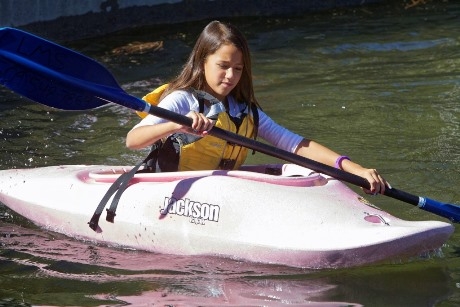
A recent study, carried out by Learning Away, has revealed that far too many children are missing out on potentially life-changing residential experiences.
The new study examining ‘the state of school residentials in England: 2017’ has been released this week, and assesses the quantity and quality of residentials currently delivered in schools.
Based on analysis of data from tens of thousands of schools and educational establishments over the last five years, the study has found that far too many children are missing out on ‘powerful learning and life experiences’, with only one in five children experiencing a residential every year.
The study also found a picture of ‘patchy and inequitable access’, with young people in the poorest areas the least likely to participate. Furthermore, only around half of teachers said they believed the residentials they delivered were affordable to all pupils.
Why are residentials important?
Learning Away’s initial research report stated that they “provide opportunities and benefits/impacts that cannot be achieved in any other educational context or setting” and “the combination of activities and shared experience of living and learning with others makes a residential a unique learning opportunity.” They have even been described by teachers as “worth half a term in school”.
Remarking on the study and the accessibility of residentials for all students, Joe Lynch, chair of the Learning Away Consortium, commented: “This new study provides disturbing evidence that disadvantaged students are missing out on the transformational impact of residential experiences.
“Surely if these experiences have such a significant impact, all children should be entitled to have them during their time at Primary and Secondary school.”
Winter residentials
Learning Away believes that the impact, quality and accessibility of residentials could be improved if schools consider providing more autumn and winter residentials, as Lynch explains.
“Going on a winter residential is a great time to kick start key subjects with inspiring hands on learning. Doing this in the first term allows time for learning to be embedded back in school which we know has a long term impact on students’ progress and attainment.”
Looking to the future
Paul Whiteman, general secretary of school leaders’ union NAHT said: “We are acutely aware of the negative impact of funding pressures. At our annual conference this year delegates voted in favour of campaigning for protected funding to enable all children to have access to high quality outdoor education and residential experiences.
“It is distressing to learn that they are not available to all students. The education funding crisis is only going to reduce opportunities to participate in residential activities, which is why we are campaigning for protected funding to enable children to have greater access to high quality residential experiences. We want more residential opportunities, for more children, more of the time.”
For more information, visit www.learningaway.org.uk.










